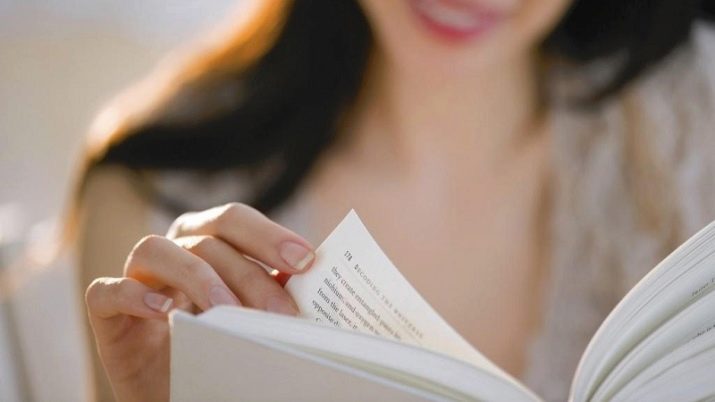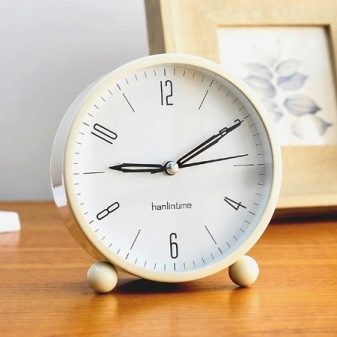What is concentration of attention and what is it like?

Concentration of attention helps us to more effectively learn about the world around us. Its decrease is equally dangerous for both children and adults. This article will tell you how to test your concentration and increase it.
What it is?
Modern psychology interprets the definition of "concentration of attention" as the moment of retention of information about any object in our short-term memory. Science characterizes concentration as one of the properties of attention. Thanks to her from the multitude of objects inside and outside of us, our attention "snatches" certain objects in order to obtain maximum operational information about them in a given situation. If a person's ability to focus his "inner ray" on something is impaired, then they speak of absent-mindedness.
How our concentration works is easy to imagine. Notice how quickly children "catch" everything they find interesting, and how difficult it can be to focus the baby on something that does not arouse his genuine interest. There is no need to teach this to children - from birth they are able to concentrate their attention. But it is imperative to accustom to this useful habit. That to which a person directs his "inner ray" - the object of concentration of attention, at the moment is the most important for him. Everything else is perceived somewhat blurry, vague and without details. The longer a person is able to maintain attention on an object, the better. Such people are distinguished by high observation, self-control.
The ability to concentrate a beam on one object is extremely important for scientists, and the ability to scatter it over a wide range of things is of decisive importance for soldiers of special forces, for scouts, and drivers. But concentration must be trained by all, without exception, people, no matter who they work.
Focus allows you to accomplish any task more efficiently.

Classification
There are three types of concentration.
- Arbitrary - this is the conscious direction of the "inner ray" to a certain object, done with effort. Such concentration is usually used by us in training, in the performance of our professional duties.
- Involuntary - the focus of attention is focused on something himself, the person does not put any effort into it. A loud sound, an unusual, non-standard object - this is what can distract us from an important matter and instantly switch our attention to a new subject.
- Arbitrary - concentration is retained on the object itself after the applied voluntary efforts.
This happens when a person is incredibly interested in what he is doing at the moment.

How to check?
It is not difficult to determine the level of one's own concentration of attention. For such a check, special tests have been developed. In modern psychology, three main tests are used, thanks to which you yourself can determine your ability to control concentration of attention, its duration.
Munsterberg method
Letter test. Whole words are “hidden” on the sheet among many individual letters. Look carefully and find these words as quickly as possible. Research has shown that the optimal testing time is two minutes. During this interval, a person is able to select a maximum of words, which will describe the degree of his personal concentration. The words found are underlined with a pencil. Here's an example:
Bsolntsevtrgschoirayonzshnuchnovostaahegchyafaktyukekzamentrochagsch gtskprokurorgurstabeyuteoriyantobzh eubzhamahokkeytruitsyktsuigatelevizorboldzhschehyuelgschbpamyatshogeyu zhpzhdregschknodvospriyatieytsukengoizhvafyproldblyubovavyfprosdspektaklyachsimtbyu nbyueradostvuftsieoldzhnarodoldzhdbshyreportazhzhdorlafy vyuefbyukonkursyfnyuvskayaprrilichn ostzzheeyudshschglodzhinepppprplavanietlzhebyprtkomediyaschlodkuivotchayanienfrln yachvtdzhheftasenlaboratoriyagshdschiutstrrilosnovaniyazh.
There are 23 hidden words in this set of letters. If in 2 minutes of the allotted time you managed to find them, your concentration is all right.... If you don't have time, then this is a sign of low, weak concentration. Your brain does an excellent job of managing concentration and processing information if 23 words are found before the control time expires.

Schulte tables
These are numerical tables in which numbers are scattered randomly. For 1 minute, you need to look at the table, and then remove it and try to reproduce everything that you remember on paper. The second way is without preliminary contemplation. A person takes a table and for a while immediately begins to determine the location of the numbers in ascending order - 1,2,3, etc., pointing to the desired cell with the tip of a pen. Tagging is prohibited.
A high level of concentration is indicated by completing a task in 40 seconds. 50 seconds is also a good result, indicating that the level of concentration and its duration are sufficient. If it took more than 55 seconds, you should start increasing your concentration - it is weak.
The words
Ask someone to read to you ten words that are in no way connected with each other, that do not even have associative relationships: fish, sky, mayor, fear, cube, etc. After the first reading, you need to reproduce in any order what you managed to remember from the list. A score of 8 or more words is considered excellent.... If you managed to memorize only 7 words, then they speak of satisfactory concentration. If less than 7 words - the level is weak, correction is required.

Reasons for the decline
Impaired concentration can be observed in both a child and an adult at any age. The inability to freely concentrate the focus of inner concentration leads to problems with learning, work, and can be life-threatening. Loss or lack of concentration lowers the standard of living. A person with such impairments cannot concentrate attention even with effort on the desired object, cannot hold it for a long time, and has difficulties in performing work. A person is often distracted, does not remember the incoming information badly. What causes the disorder?
- Lack of interest and need for an object - for a person it does not matter what he needs or is asked to pay attention to.
- Emotional condition - the feeling of joy, grief, and stress distort our perception, so it is not surprising that a lover's concentration temporarily worsened, and a person experiencing a personal drama is completely bad.
- External conditions - concentration will more often switch to involuntary forms, it will be disturbed if there is noise, din, loud and harsh sounds, light flashes, etc.
- Fatigue and stress - too long stress, including mental, leads to a decrease in concentration. Rest is needed before the ability is fully restored.
- Hormonal Disorders - precisely because of the instability of the hormonal background, pregnant women, the elderly, adolescents often seem absent-minded and forgetful, inattentive.
- Irrational daily routine in which a person does not get enough sleep, does not fully rest in the time allotted for this.
- Hunger, diet also reduce the level of concentration.
Alcohol and drugs, some medications, and age-related changes in the brain in old age can also reduce the concentration level both temporarily and permanently.


How to raise?
Increasing personal concentration of attention in children in the learning process is often carried out according to the Montessori system, for adults and children equally useful Pieron-Roser methodology, aimed at increasing the stability of the internal focus of concentration. Anyone can improve concentration, even if the workouts and exercises described below seem boring and monotonous at first. A patient approach and systematic training will help you achieve impressive results.
Exercises
- "Only calmness!" The essence of the exercise is to sit quietly in a chair or in a comfortable chair. Try to get into a comfortable position and be as calm as you can. Try not to make spontaneous movements, watch for muscle relaxation. Hold on in this state for at least a quarter of an hour, but you can start from five minutes. Exercise will help you focus on yourself, your inner feelings, and teach you how to relax and deal with stress and distractions.
- Look at your fingers. Sit upright, keep your back straight, raise your right hand to shoulder level and carefully look at your fingers. Stay still and focused for exactly 1 minute. Increase the time gradually. When the right hand is under control, proceed to the same exercise, but this time on the left hand.
- "Glass of water". Fill a small transparent glass with water. Take it in your hand and hold it in front of you, trying not to allow the surface of the water to vibrate. To begin with, focus on muscle relaxation and concentration of gaze on the surface of the liquid for a minute, gradually bring the time to 5 minutes. After the right hand, instruct the left hand to hold the glass.
- "Cams". This simple exercise is very effective. Sit at a table, put your hands on it and clench your fingers into fists. Focus on each individual finger in turn, slowly spreading them out in sequence, starting with the index. Having straightened everything, just as slowly, one at a time, fold them to their original position.
- "I feel everything"... Concentrate on the smells as you walk past the flowers, when traveling in public transport. Choose only one of the scents and focus on it, trying to imagine where it comes from. On the street, it can smell like hot cakes, cigarette smoke, perfume, etc.
- "Watch". Place or lay a watch with a second hand in front of you. Try to follow her movement with your eyes and mentally, not thinking about anything other than the arrow.
To begin with, try to master at least one full circle, that is, concentrate for exactly one minute. Gradually increase your exercise time.


Technique
Improving the degree of concentration will help the technique of focusing on internal processes. Follow consistently how your heart beats, how you breathe, how blood enters your fingers, muscles. Try to focus on the sensations as much as possible by imagining what is happening in detail. Very soon you will realize that you have begun to feel differently, that your body helps you in many ways, even in making decisions, as it signals any tension, negative thoughts.
The so-called mirror technique. Mark two points on the mirror near the reflection of your eyes with a marker. These will be the fictional eyes of your imaginary interlocutor. Keep your back straight and look confidently into those "eyes." Focus on being confident in yourself. Try not to strain a single muscle in your body.
In Eastern practices, special techniques are adopted. Sit up straight, close your nostril with your hand and exhale slowly with the other nostril, internally counting to ten. With the other nostril, change your hand, take the same slow and measured breath. Repeat this several times. Also, oriental yogis and Tibetan monks highly value the technique of contemplation. Look at something beautiful - a photograph of the sea, a mountain landscape, a living flower, trying to simply contemplate, without giving any assessment and not allowing the free flow of chaotic thoughts. At first, it will be difficult to hold out even for a minute, but with subsequent training, the skill of concentration will improve.

Not the last place is given to techniques of mental control or control of thoughts and desires. This is the most difficult part of the exercise, as desires and ideas are generally difficult to control. Notice everything that you feel at the moment, learn to highlight your desires, gradually move to thoughts in the same way, consciously blocking negative ones with an internal command and rewarding yourself for positive thinking. It is best to train mental control on the following example: you really want to share a news or fact with a loved one, pull yourself together, overcome this desire and internally say several times everything that you were going to “blurt out” five minutes ago. And only when you feel that the desire to communicate the news is under your control, start talking, calmly and measuredly.
Read more and be sure to retell what you read out loud, sharing it with others.... Retelling what you read is a great exercise for your memory, communication skills, and concentration. Avoid lengthy and vague descriptions. What the writer has fit in five volumes, we must tell briefly, succinctly and concisely, choosing only precise formulations. It is not necessary to set aside special time to apply these techniques. Use those free five minutes that are available at work, school, on the way home, time before bed.
As a result, you will soon realize that it is easier for you to perform all professional tasks, it takes much less time for them, and you will also understand that you have become calmer, measured, and now it is more difficult to lose your temper and bring you to stress. Positive changes in you will certainly be noticed by those around you.









